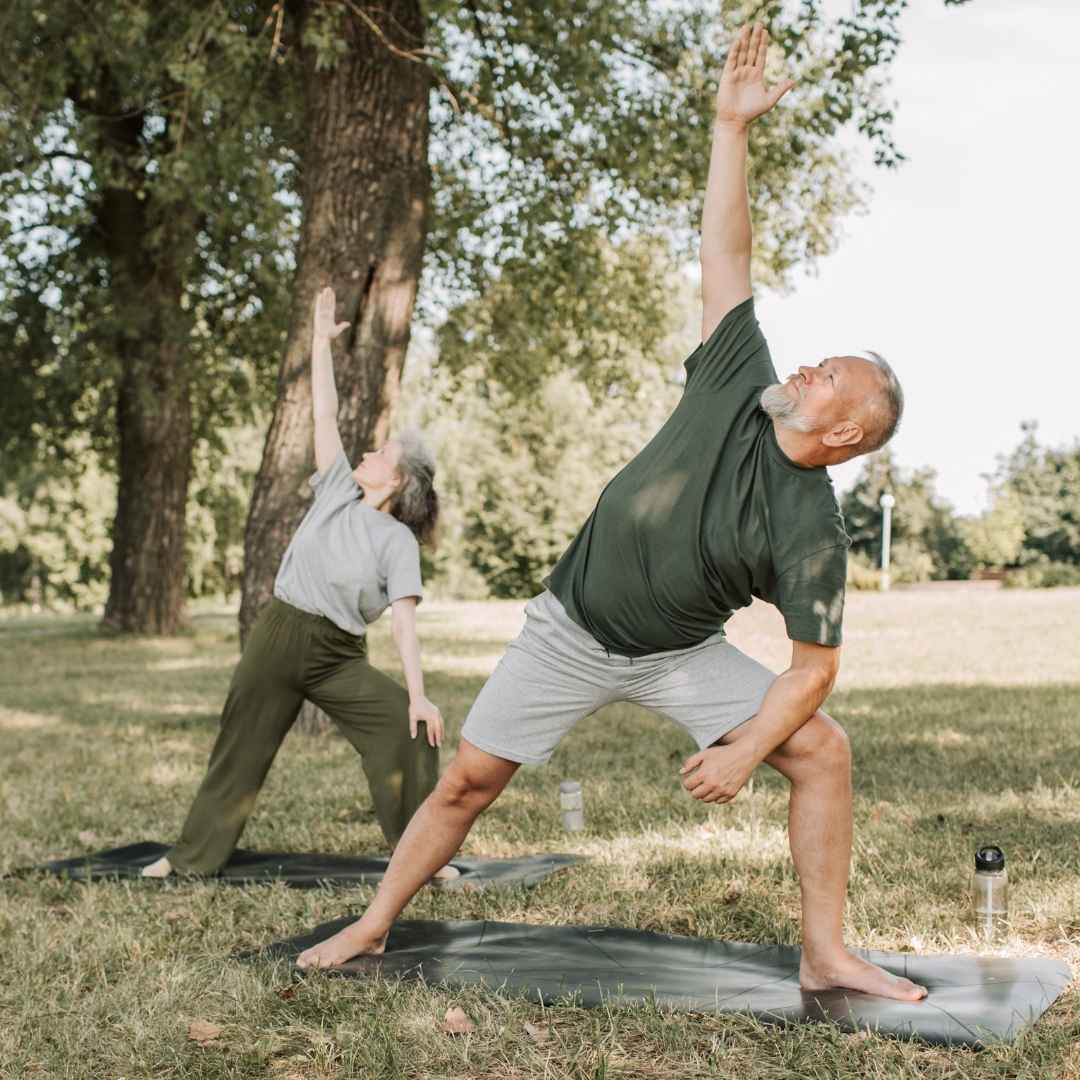- Ventral Hernia:
Struggling with recurring hernia issues or discomfort?
Abdominal Wall Hernia Repair can restore your core strength, relieve pain, and help you regain confidence in your daily life.

An abdominal wall hernia occurs when an internal organ or tissue pushes through a weakened area in the abdominal muscles. This condition can develop due to various factors such as pressure from heavy lifting, obesity, pregnancy, chronic cough or previous surgeries. Understanding the types of hernias that can occur in the abdominal wall is crucial to determining the appropriate treatment:
If you're experiencing any of these types of hernias, you might be considering surgery to restore normal abdominal function and prevent potential complications. In these cases, advanced surgical techniques can effectively repair the hernia and strengthen the abdominal wall, helping to alleviate pain and improve daily function. Dr. Hrishikesh specializes in treating abdominal wall hernias using state-of-the-art methods to ensure the best outcomes for his patients.
Hernias occur when there is a weakness or hole in the abdominal muscles, allowing internal tissue or organs to bulge through.
This can be caused by factors such as heavy lifting, obesity, pregnancy, aging, chronic cough or a history of previous surgeries.
This procedure offers an opportunity to revise or replace the previous surgery to better and/or meet weight loss goals.
You may notice a bulge in your abdomen, along with pain or discomfort when lifting, bending, or performing physical activities.
Some hernias may not cause noticeable symptoms but can still be detected during a physical exam.
Ignoring a hernia can lead to serious complications like incarceration (when the hernia becomes trapped) or strangulation (when the blood supply to the herniated tissue is cut off).
Both conditions are emergencies that require immediate surgical intervention.
Hernia repair surgery is the most effective solution. Depending on the hernia's size, location, and type, Dr. Hrishikesh will choose between minimally invasive laparoscopic surgery or traditional open surgery.
Both techniques aim to reposition the hernia and strengthen the abdominal wall, often with the use of a mesh for added support.
Hernia repair surgery is typically the only way to correct an abdominal wall hernia. During the procedure, the surgeon pushes the herniated tissue back into place and repairs the weakened area in the abdominal wall. In many cases, mesh is used to provide additional reinforcement to prevent future recurrence of the hernia.
The choice of surgical method depends on the hernia’s characteristics (size, location) and the patient’s overall health. Whether it’s your first hernia or a recurrent one, Dr. Hrishikesh uses advanced techniques to provide the most effective and minimally invasive approach possible.
Yes, surgery is highly effective in addressing recurrent hernias, especially when techniques like mesh reinforcement are used to prevent future occurrences.
Most patients report significant pain relief following surgery. The hernia repair reduces the pressure that causes discomfort, allowing for a more comfortable post-surgery experience.
Yes, by resolving the hernia, surgery can prevent further health complications and restore your ability to perform daily activities without discomfort.
Dr. Hrishikesh will determine the best surgical approach based on the hernia’s size, location, and the patient’s specific condition.
Options include minimally invasive laparoscopic surgery, robotic surgery or open surgery.
Discover the surprising success rates, health improvements, and lasting weight loss that make Abdominal Wall Hernia Repair Surgery a life-changing option for many.



The type of surgery chosen will depend on the size, type, and location of the hernia, as well as the patient's overall health. Dr. Hrishikesh will recommend the approach that will provide the best results with the least discomfort and fastest recovery.
Hernia repair surgery can be performed using three main approaches:
Laparoscopic surgery uses smaller incisions and a camera, leading to a faster recovery, less pain, and smaller scars.
Open surgery involves a larger incision and may be necessary for larger or more complicated hernias.
The surgery typically lasts between 1 to 2 hours, depending on the complexity and type of hernia being repaired.
Most patients report only manageable pain after surgery, with relief provided by medication.
Recovery times are relatively short, and most patients experience significant improvement within days.
If left untreated, a hernia can worsen, leading to severe complications like strangulation, which can become a medical emergency. It’s important to address hernias early to avoid these risks.
The recovery process after hernia surgery can vary depending on the type of procedure performed:
Laparoscopic surgery patients often return to work within 1-2 weeks. If you undergo open surgery, it may take a few more weeks for a full recovery.
Yes, you'll need to avoid heavy lifting, strenuous exercise, or activities that put strain on the abdomen for several weeks.
For laparoscopic surgery, most patients feel back to normal within 4-6 weeks. For open surgery, recovery may take 6-8 weeks.
While most patients experience lasting relief, there is a small chance of recurrence. Dr. Hrishikesh uses advanced techniques like mesh reinforcement to minimize this risk.
Read from our patients as they share their inspiring journeys of transformation, recovery, and renewed confidence.
Dr. Hrishikesh is a highly experienced surgeon with a specialized focus on abdominal wall hernia repairs. His expertise in laparoscopic, robotic and open techniques ensures that you receive the most suitable treatment for your condition.
He prioritizes patient care and takes the time to discuss all available treatment options, risks, and expected outcomes, empowering you to make an informed decision about your surgery.
If you're experiencing symptoms like abdominal pain, discomfort, or a noticeable bulge in your abdomen, it's a good idea to consult with a surgeon.
While some hernias may be small and asymptomatic, others can cause ongoing issues that require surgical intervention. A thorough evaluation by a specialist like Dr. Hrishikesh can help determine if surgery is the best option for you.
Like any surgical procedure, hernia repair comes with potential risks, including infection, bleeding, and complications related to anesthesia.
However, these risks are minimized when the surgery is performed by a skilled and experienced surgeon like Dr. Hrishikesh. He will take every precaution to ensure your safety throughout the process.
Hernia repair surgery is typically very effective, and most patients experience long-term relief from symptoms.
However, there is always a small risk that the hernia could recur, especially if certain lifestyle factors (e.g., heavy lifting, chronic cough, smoking or obesity) are not managed post-surgery. Dr. Hrishikesh uses advanced techniques, such as mesh reinforcement, to help reduce the chances of recurrence.
Yes, in some cases, abdominal wall hernia repair can be performed as an outpatient procedure, meaning you can return home the same day after surgery.
This is especially true for laparoscopic surgeries, which tend to have shorter recovery times and fewer complications compared to open surgery.
Most insurance plans cover hernia repair surgery if it's deemed medically necessary. To find out whether your surgery will be covered, it’s best to consult your insurance provider and check the details of your plan.
Dr. Hrishikesh’s team can also assist in verifying coverage and help navigate the insurance process.
Reach out to us to Book an Appointment for personalised care and treatment options.
Whether for a consultation or more information, we're here to assist with all your concerns and guide you through the process.

Dr. Hrishikesh Salgaonkar is a highly skilled Consultant Surgeon with over 10 years of experience, specializing in Bariatric, Robotic, and Minimal Invasive Surgery.
Dr. Salgaonkar has worked with top hospitals in India and the UK, delivering evidence-based care, and holds advanced certifications from the Royal College of Surgeons and National University Hospital, Singapore.
Check out other treatments offered by Dr. Hrishikesh, tailored to your unique needs.
Whether you're looking for solutions for weight loss, hernias, or other health concerns, trust Dr. Hrishikesh for expert care and successful outcomes.


